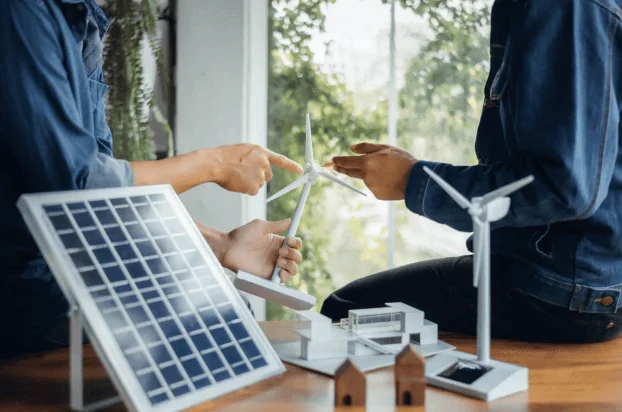The Future of Solar Technology in Nigeria

Nigeria’s energy landscape is at a pivotal juncture. With over 90 million people lacking reliable electricity and diesel costs soaring, solar energy has emerged as a beacon of hope. As the nation embraces renewable energy, cutting-edge solar technologies and forward-thinking policies are paving the way for a brighter, greener future. This blog explores Nigeria’s solar revolution, the innovations leading the charge, and how businesses and households can harness these advancements.
Emerging Solar Technologies Transforming Nigeria
- Bifacial Solar Panels:
These dual-sided panels capture sunlight reflected off surfaces like rooftops or sandy terrain, boosting energy output by 20–30%. In northern Nigeria, where sunlight is abundant, bifacial systems are ideal for maximizing efficiency. - Solar Storage Breakthroughs:
Lithium-ion batteries and hybrid inverters now store excess energy for use during outages. Companies like Lumos and Greenlight Planet offer pay-as-you-go solar kits with integrated storage, empowering off-grid communities. - Smart Solar Microgrids:
AI-powered microgrids, such as those deployed by Ampersand in Lagos, dynamically balance energy supply and demand. These systems prioritize critical facilities like hospitals and schools during shortages. - Solar-Powered AgriTech:
Solar-driven irrigation pumps and cold storage units are revolutionizing farming. In Ogun State, the Solar ColdHubs project reduces post-harvest losses by 80%, helping farmers increase profits.
Government Policies Fueling Solar Adoption
Nigeria’s Renewable Energy Master Plan (REMP) aims to achieve 30% renewable energy by 2030. Key initiatives include:
- Solar Tax Exemptions: Waivers on imported solar equipment to reduce costs.
- Nigerian Electrification Project (NEP): A $550 million initiative to fund off-grid solar solutions for 5 million households.
- State-Level Incentives: Lagos State’s Lagos Solar program subsidizes rooftop installations for SMEs.
Challenges and Solutions
- High Initial Costs:
While panel prices have dropped, upfront expenses remain a barrier. Solution: Partnerships with fintech firms like Renmoney offer low-interest solar loans. - Technical Expertise Gaps:
A shortage of certified installers slows deployment. Solution: GPIS collaborates with technical schools to train 500 solar technicians annually. - Grid Integration Issues:
Aging infrastructure struggles with decentralized solar input. Solution: Smart inverters and microgrids bypass unstable grids.


Success Stories: Solar Lighting Up Nigeria
- Jigawa Solar Farm:
This 200 MW project powers 150,000 homes and businesses, reducing CO2 emissions by 450,000 tons yearly. - Solar Sisters Initiative:
A female-led enterprise distributes portable solar lamps and cookstoves across rural communities, impacting 500,000 Nigerians. - Lagos Business Hub:
A Surulere-based SME slashed energy costs by 60% after installing a 50 kW rooftop system with GPIS, reinvesting savings into expansion.
What’s Next? Predictions for 2030
- Solar Skins: Customizable panels mimicking traditional roofing materials for cultural acceptance.
- Blockchain Energy Trading: Peer-to-peer platforms like Nayo Tropical Technology enabling users to sell excess solar power.
- Solar Desalination: Addressing water scarcity by powering purification plants in drought-prone regions.
Conclusion: Seize Nigeria’s Solar Momentum
The future of solar in Nigeria is not just about technology—it’s about empowerment, sustainability, and economic growth. By adopting innovative solutions and leveraging supportive policies, households and businesses can break free from erratic grids and high costs.
Ready to Lead the Change?
GPIS offers free consultations to design solar systems tailored to your needs. Visit GPIS Solar Solutions or call +234 87033924475 to start your journey.


Ademola Olayioye